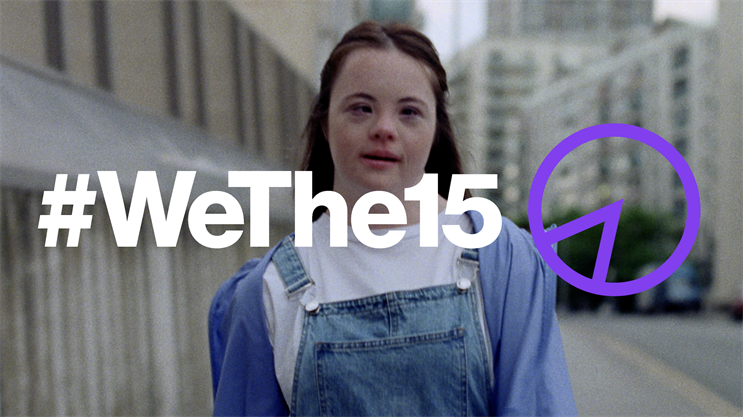
Adam & Eve/DDB’s new film "#WeThe15" signals a starting pistol for a decade-long global campaign fighting for the true inclusivity of the world’s population of disabled people.
The spot launches tonight, five days ahead of the Tokyo 2020 Paralympics, and will be screened by broadcasters around the world, including Channel 4 and NBC during the Paralympic Games. It will also be broadcast live to an audience of more than 250 million worldwide during the opening ceremony.
Created by Selma Ahmed and Genevieve Gransden and directed by Sam Pilling at Pulse Films, the campaign for the International Paralympic Committee redirects the narrative around people with disabilities away from one in which they are stereotyped as objects of pity or put on a pedestal, in a bid to emphasise that disability is not an “other”, it is humanity.
A&E/DDB chief creative officer Richard Brim told ±±¾©Èü³µpk10: “There are 1.2 billion disabled people in the world. And if you think about it in that context, that's 15% of the world's population that is disabled (and that does include invisible disabilities too). Representation is just not the case; you don't see 15% of the people walking down the street with a disability.
“In certain countries it is the invisibility of disability that is the problem.
"So we said: they need to be seen. They are 15% of the world and they need to be seen. We need a rolling thunder for the next 10 years. Let’s set ourselves some goals and objectives in that 10 years to normalise and shine the light on, and make people be seen. So we came up with this idea, WeThe15 and we believe the 15 deserves to be seen.”
The campaign has its own logo – a symbol not dissimilar to a pie chart marking the 15% developed by design studio Pentagram – and throughout the Paralympic Games, athletes will wear temporary tattoos made from the #WeThe15 symbol.
A vibrant shade of purple, a colour increasingly used to symbolise disabled people, complements the campaign, which will be literally highlighted when 125 iconic global landmarks across six continents – from Tokyo’s Skytree to Niagara Falls – are illuminated in purple light as the campaign launches.
Dozens of organisations and brand partners including Allianz, Coca-Cola, Facebook, Twitter, Intel, BP, Visa and more will also show their support by sharing bespoke content, updated logos and their plans for progressing the inclusivity agenda.
Filmed in Bogota, Bangkok, London, Johannesburg, Milan and Manila, the film features nearly 40 disabled individuals delivering genuine quotes that show the way disabled people are framed by even the well-meaning. It provides a platform to challenge viewers to recognise them not through those stereotypes, but as ordinary people who demand true inclusion.
For Brim, this meant moving away from the “superhumans” narrative sown during the 2012 Paralympic Games by Channel 4, which showcased the very elite.
Brim said: “We wanted to be about the community as opposed to the Olympic community."
The wider campaign – spearheaded by the IPC and the International Disability Alliance and multiple international organisations including the Invictus Games Foundation and the UN – is striving to become the world’s biggest ever human rights movement for the world’s 1.2 billion disabled people.
Prince Harry, who is the patron of the Invictus Games Foundation, said: “One of the reasons why I was inspired to create the Invictus Games was to help destigmatise physical and invisible injuries and give the men and women who have experienced them a platform to show the world that they and we can accomplish anything, when we put our mind to it.
“Everybody at the Invictus Games Foundation is honoured to join the WeThe15 campaign and believe in its mission to inspire meaningful change in communities around the world.”
Michelle Bachelet, UN High Commissioner for Human Rights, commented: “WeThe15 is bringing together a unique group of partners – disability-specific sports organisations, the disability rights movement, people from the private sector, researchers and the United Nations – to work together to change the narrative on disability, and to make human rights-based development a reality for persons with disabilities.”
PR for the campaign was handled by FleishmanHillard, Porter Novelli and Portland and the media agency is Omnicom Media Group. Outdoor creative assets will run in high-profile sites across the UK, US, Canada, Japan and France, including a complete domination of the Piccadilly Lights in London.
Craig Spence, chief brand and communications officer at the IPC, said: “We want to use the platform fo the world’s third biggest sport event to spark a decade-long transformation for the world’s largest marginalised group.”



.jpg)
.jpeg)
